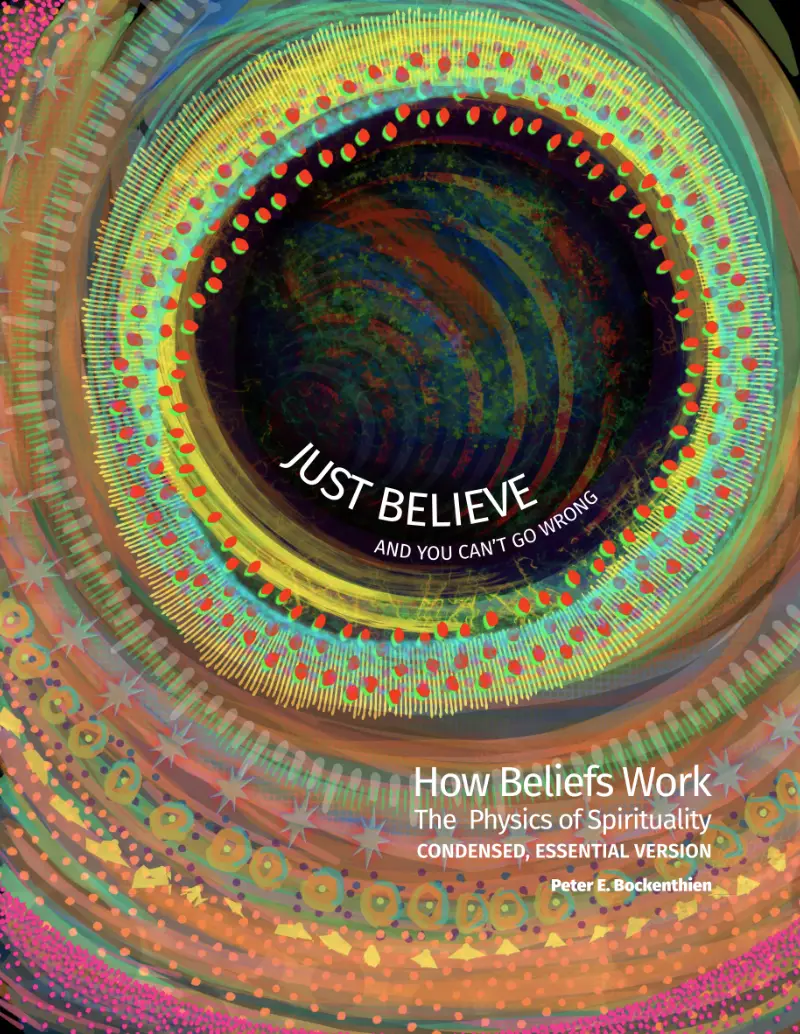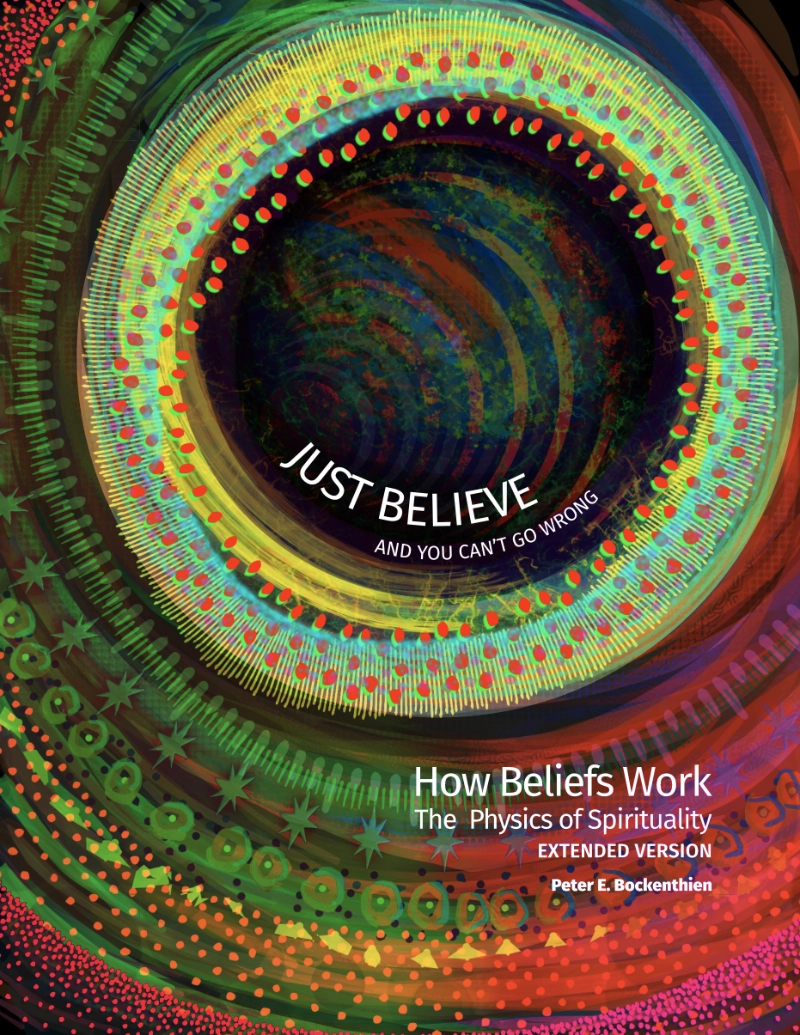Transactional Beliefs, pt. 2
Beliefs agnostically self-reinforce instantaneously, creating feelings, thoughts, and actions in that order, which themselves create more self-reinforcing feelings, thoughts, and actions.
This is supported biologically by Dr. Bruce Lipton's “The Biology of Belief”, and Bessel van der Kolk's “The Body Keeps The Score”.
How Beliefs Work deconstructs the role of religion in general and Christianity to reveal what both books point to: you are more powerful than you have been told.
Cornerstones of the deconstruction of Christianity
Original Epigenetics
You’ve heard of this as original sin. Same thing.
The Whole Point
Skip resolutions, just promise to be the best version of yourself.
Whatever you believe, you become
Sow and reap is a primary principle of quantum physics. One sows and reaps with their beliefs. Disbeliefs operate by the…
Ego is Epigenetic
To be the best version of yourself, enable and empower others to be the best version of their selves.
God, Mammon, Quantum States
By merely believing marketing messages we enter into the quantum state of that marketing which alters our perceptions of…
The Real Reason Nobody Wants To Be In Church
Where Christianity went wrong and why it matters.
Bruce Lipton, PhD: The Jump From Cell Culture to Consciousness
The new science is called epigenetics. It sounds similar, but it is profoundly different. Epi means 'above,' so when I say…
Relationships
The Bible isn’t about religion. It’s about relationships. It’s not about a God out there, it’s about the incredible power…
Bad Friday
Good Friday should be known as ‘Bad Friday’. Just goes to show how successful the coverup of the murder of an innocent man…
The Power of Hi!
AI Requires Human intelligence! to power it.
Love Love Love Love
Love bears, believes, hopes, endures all things. But Evangelicals don’t.
The Tree of the Knowledge of Good and Evil
To be born again/anew means to move past your epigenetic speech-thought patterns. One moves from the epigenetic “I want”…
Born Again/Anew
To be born again/anew means to move past your epigenetic speech-thought patterns. One moves from the epigenetic “I want”…
A Second Opinion
The reason we collectively don't believe that we were created with this divine power is because (1) we are infected with…
Academic Inquisition Déjá Vu
The biggest factor when it comes to beliefs is not a belief in God, but rather a belief in organized religion as being beneficial…
Treating Others Determines Your Destiny - And Theirs
When you believe the wrong things about yourself, you believe the wrong things about everything else, and you act in strict…

